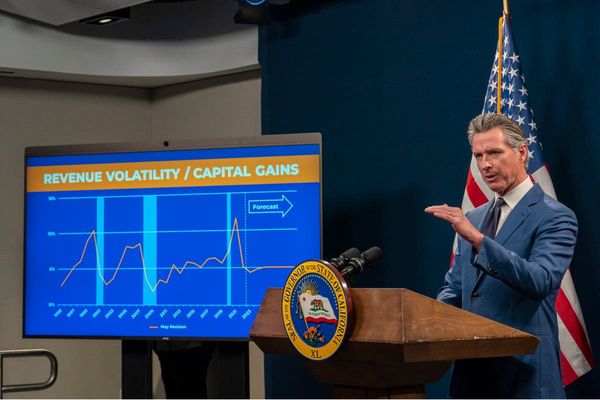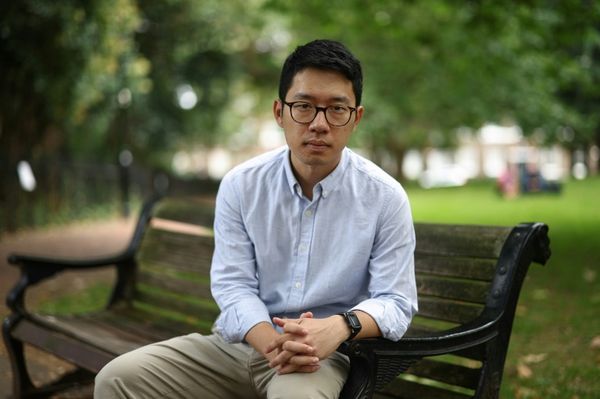
Far be it for Crikey to set the agenda for the National Anti-Corruption Commission (NACC). After all, the eagerly awaited body has already been flooded with some 300 or so referrals. Who knows what is lurking in those deep murky ponds?
We would humbly suggest, though, that the doings of the former cabinet minister and recently retired member for Fadden Stuart Robert might be a good starting point. It might just be the thread that unravels the whole Morrison government enterprise.
At the same time, we underline that Robert himself has always denied allegations of impropriety that have been levelled at him over the years. Crikey is not alleging any wrongdoing — merely that there is much about Robert’s case that is in the public interest to pursue.
Crikey raised many of these issues in a series of investigative reports published in 2021, when the Morrison government was still in power. This was before serious claims made in June of this year under parliamentary privilege — vigorously denied by Robert — that a consulting company, Synergy 360, run by his friends had been set up to pay kickbacks to the then-minister in return for him helping the company and its clients win government contracts.
So what might a NACC investigation traverse?
The blind trust
When Robert was elevated to the Morrison government ministry in 2018, he was faced with the question of how to deal with potential conflicts of interest as a minister. Before and during his 15 years in Parliament, Robert had amassed a large portfolio of investments, from property to shares, making him one of the wealthiest members of Parliament.
Robert’s solution was to place his personal assets into blind trust structures, which he declared were “independent of me, where I have no control over investment decisions” and which are “externally professionally managed”. The declaration covered assets in his family trust, self-managed super fund, and his major investment vehicle “Robert Property Portfolio”. At the same time he declared that all shares held in his, his wife’s and children’s names had been sold.
Robert’s blind trust turned his public declaration of interests into a virtual blank page.
He did not identify who acted as the trustee, or the trustee’s address. In other jurisdictions such as the ACT, Victoria and NSW, members of Parliament need to show this information as one form of external accountability. Without identification, the trustee could be a parliamentarian’s best mate. Who would know?
Robert correctly insisted, though, that he was not required by the government’s code of conduct to say who his trustee was.
Government probity experts have also questioned the true effectiveness of blind trusts as a shield against conflicts of interest.
Formidable Queensland corruption investigator Gary Crooke QC, one-time head of the National Crime Authority and also a former Queensland integrity commissioner, told a Victorian government inquiry in 2009 that blind trusts did not always work in practice.
“A blind trust is well and good if it is a blind trust. A blind trust just means you do not know what the heck is in it,” he said. “You see a lot of people go into a blind trust and they put the very shares they are holding into that blind trust. It then becomes a seeing trust, because they know exactly what is in it.”
And in 2012, then-Queensland integrity commissioner David Solomon and clerk of the Queensland Parliament Neil Laurie issued some public advice for incoming premier Campbell Newman that blind trusts had “a poor record” and had not proven to be effective as an accountability mechanism.
“Blind trusts are, by their nature, an anathema to regimes of public disclosure,” they concluded.
Former prime minister Malcolm Turnbull did not consider the blind trust mechanism to be “acceptable” in public life.
Turnbull, the multimillionaire, went in the other direction. He declared every single investment held by him and his wife Lucy in a statement to end all statements.
The role of Scott Morrison
When questioned in the past, Robert has insisted that his financial arrangements were in line with the Morrison government’s ministerial standards.
This meant that, under the Morrison government’s ministerial code of conduct, Robert was ultimately answerable to the prime minister on conflict of interest questions.
It is common practice at federal and state levels for the prime minister or premier to have the role of custodian of ministerial integrity — a central problem for former NSW premier Gladys Berejiklian.
A NACC inquiry might well interrogate whether or not this remains an acceptable practice.
In the Robert case, he and Morrison had the closest of relationships. They are former flatmates. Robert did Morrison’s numbers for his run to succeed Turnbull. The two have close religious bonds. Robert prayed for Morrison’s success on the ballot for prime minister.
Morrison had also previously gone into bat for Robert when his friend was pursued over a previous conflict of interest that led to him being banished to the backbench in 2016. Morrison, who was then treasurer, loudly objected to any investigation into Robert, calling the accusations “a ridiculous beat-up”.
The head of the prime minister’s department
Robert’s strongest defence to conflict of interest allegations has been that he sought advice from the then-head of the Department of Prime Minister and Cabinet, Martin Parkinson, before he restructured his financial affairs and deregistered his private companies after he was brought into Morrison’s cabinet.
An inquiry might pursue the substance of that advice and how effective it was.
The parliamentary register of interests
The stated purpose of the parliamentary register of interests is to place on the public record members’ interests that may conflict, or may be seen to conflict, with their public duty.
In the case of Robert, once he placed all his assets behind the veil of a blind trust, it became impossible for the public to know any details of his interests.
That placed Morrison in a key position of public trust.
A NACC investigation could well have something to say about the continuing use of the register of parliamentary interests, particularly given that it is essentially an honour system with no independent checks.
The mystery committee
Finally there was the cabinet governance committee, a little-known subcommittee made up of the government’s most senior figures: the prime minister, deputy prime minister (and Nationals leader), treasurer and attorney-general.
As the committee’s name suggests, it existed to provide a layer of oversight — precisely into what, though, is unclear.
Former South Australian senator Rex Patrick alleged it was one of the “key mechanisms to keep [Morrison’s] government’s dirtiest secrets under lock and key”.
Perhaps the committee’s role too could be scrutinised.







